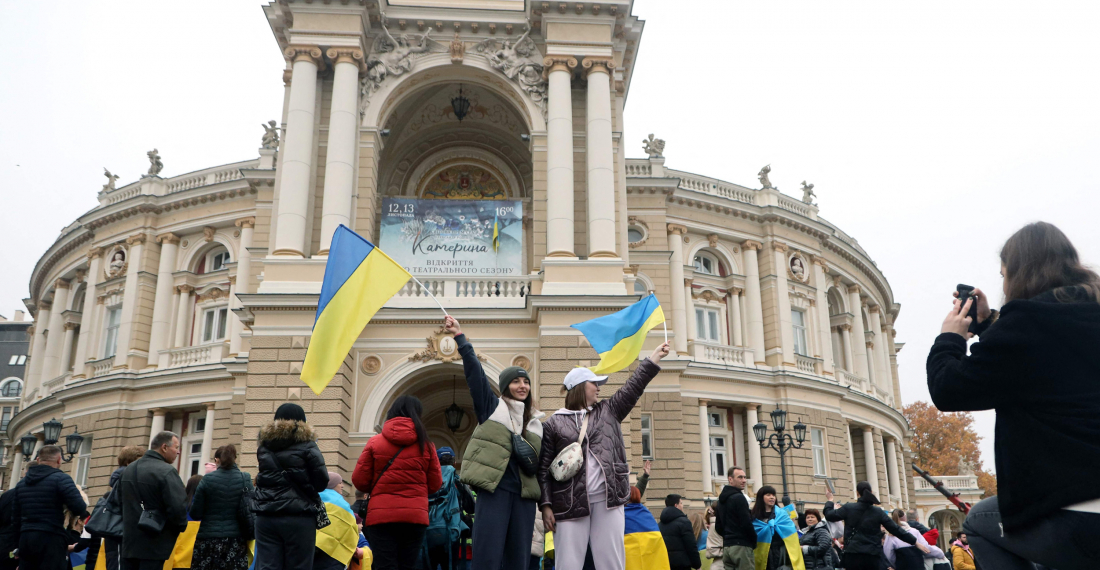The withdrawal of the Russian army from the city of Kherson ends the first chapter of Vladimir Putin's misadventure in Ukraine, which started on 24 February when he ordered his army to invade.
Ukrainians rightly celebrated, as the Ukrainian army returned to the city which Russia illegally annexed only a few weeks ago. Kherson was the only regional centre the Russians were able to occupy following their February invasion, which, let us not forget, initially aimed to take Kyiv and all other Ukrainian cities.
But as the Ukrainian president, and other Ukrainian officials warned, the war is far from over yet.
In Kherson itself the situation is quite dire. The city lacks running water, medicines and food, but emergency supplies are starting to arrive from nearby Mykolaiv. 70-80,000 people live in Kherson now, out of a pre-war population of 320,000.
President Volodymyr Zelensky said that "before fleeing from Kherson, the occupiers destroyed all critical infrastructure - communications, supply of water, heat, electricity".
It is not yet clear when electricity will be restored to the city - nearby areas are expected to get it back in a few days' time. Ukrainian forces have begun the huge task of dismantling Russian mines and booby-traps in and around Kherson, Mr Zelensky said.
Meanwhile, Ukrainian TV has resumed broadcasts in the area - a key source of news for many Ukrainians.
But the Russian army is still in Ukraine, and now consolidating its positions on the left bank of the Dnipro river. The river will now serve as a natural defence barrier for the Russians in the face of Ukrainian attempts to liberate the rest of the territory under Russian occupation. And the coming winter may prove challenging for Ukraine in other ways too, given the Russian attempts to destroy key infrastructure and disrupt energy supplies.
But still Kherson can be seen as the end of the beginning. The journey for the liberation of Ukraine will take longer.
And after all Ukrainian territory is liberated, another journey will have to start: that of rebuilding Europe's security architecture on new foundations. Where Russia will stand in this is still not clear. Despite the facade of defiance and bravado, it is already evident that soul-searching has already started amongst the Russian elite about the Ukrainian adventure, and indeed about how Russia itself is governed. That, the Russian people will have to figure out by themselves, and the process is not likely to be either short, or easy.






